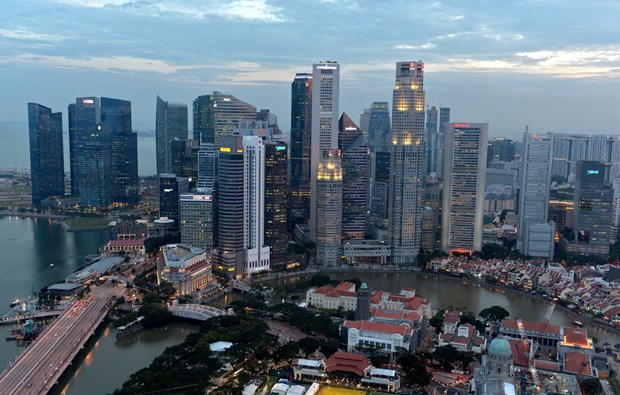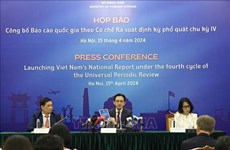Singapore takes measures to boost economy
Singapore is focusing on boosting its economy this year, which is facing a lot of difficulties.
 A corner of Singapore (Photo: sph.com.sg)
A corner of Singapore (Photo: sph.com.sg)Singapore (VNA) – Singapore is focusing on boosting its economy this year, which is facing a lot of difficulties.
According to Singaporean Minister of Finance Heng Swee Keat, the economy expanded by two percent in 2016, the slowest growth since 2009 when the economy was hit by a global financial crisis. It is forecast to grow from one to three percent in 2017.
Therefore, this year the budget will be focused on short-term challenges, medium-term restructuring plans and social support solutions for the city nation’s ageing population, he said.
The ministry stressed that ministries and agencies will face two percent budget cuts this year, adding that it does not mean the government will cut spending. Rather, financial sources will be prudently allocated with significant projects prioritised, he said.
Based on recommendations from the Committee on the Future Economy (CFE), this year’s budget looks ahead by earmarking 2.4 billion SGD (1.7 billion USD) to roll out a four-year scheme to support the economy’s response to global changes. This is in addition to industry-level transformation initiatives totaling 4.5 billion SGD (3.2 billion USD), which was funded by last year’s budget.
Heng said the country will set aside 600 million SGD (425.3 million USD) to establish a fund helping domestic enterprises branch out in foreign markets as the government hopes to help Singaporeans and companies tap overseas opportunities.
Meanwhile, 700 million SGD (496 million USD) will be spent on public infrastructure to improve transportation and upgrade sport facilities.
Some 1.4 billion SGD (992 million USD) will be used to help firms and workers as well as individuals, families and disadvantaged groups.
Regarding long-term strategies, the CFE submitted to the Prime Minister seven strategies to flesh out the economic goals, including deepening and diversifying international connections, acquiring and utilising intensive skills, strengthening enterprise capabilities to innovate, scale up, building strong digital capabilities, developing a vibrant and connected city, developing and implementing industry transformation maps and building partnerships for growth and innovation.
It suggested the Government promote trade and investment cooperation and cut tariffs and non-tariff barriers through free trade blocs such as the ASEAN Economic Community and free trade pacts like the Regional Comprehensive Economic Partnership. It also called for connectivity between domestic universities and firms with foreign partners via the Global Innovation Alliance.
Development routes for each industry need to be adjusted to match each branch’s demands, it said.-VNA












